The Barbican website warns us that Ligeti’s opera Le grand macabre ‘contains very strong language and adult themes’. The strong language consists of the four-letter words that are known to everyone and used by most people, and the adult themes are sex/love and death, which this opera has in common with almost any non-comic opera you can think of, and without which the genre would certainly never have been conceived or added to over more than four centuries. But while love and sex have often also provided the stuff of comedy, death is another matter, and presumably it is Ligeti and Michael Meschke’s robust treatment of this (superbly translated into English by Geoffrey Skelton) that we might need to be warned about. Humour this black isn’t often encountered in opera, perhaps because the idioms of western music, from the Renaissance to the mid-20th century, haven’t been susceptible to that kind of ambiguity or ambivalence. The best that could be hoped for was the kind of grotesque incongruity of Berg’s Lulu, where soaring or searing lyricism is employed for the setting of gruesome sentiments or events.
Ligeti, as a post-second world war modernist, had a much wider vocabulary and battalion of instruments available, and in Le grand macabre he exploits them to the full, and then over and over again, before ending the work with that most archaic of forms, the passacaglia, which comes with overwhelming effect after the non-stop hilarious onslaught of the previous couple of hours. Or would-be hilarious. Some loyal souls in the audience laughed occasionally, but actually the fun is not, in the main, funny. It is ebullient, though, and energising — as much as anything can be in the sauna-like temperature of the Barbican concert hall.
Ligeti’s own view of the work, in an interview in 1981, was: ‘The moral of the story: one day we shall die, but we still have a little time at our disposal and we shall take advantage of it to make love, to drink, to take life as it comes.’ Nothing that I can see to disagree with there. In fact, it’s so trite that the problem is to flesh out such a monumental platitude so that it is interesting. Ligeti did go on to talk about the imminent threat to mankind, but actually his theme is one that could safely be produced by anyone at any time. Unfortunately Peter Sellars, who produced this semi-staged version, and who had a severe falling out with the composer about his Salzburg production of it in 1997, takes the opportunity to attempt to make it topically relevant by projecting on to a large screen an advertisement for a futile disarmament conference in Berlin, interspersed with newsreel footage of protest marches by members of CND and other kindred bodies.
Fortunately, the performance at the Barbican, with the LSO in staggering form under Simon Rattle, and a uniformly impressive cast, as well as the LSO Chorus singing from the aisles, was as strong as I can imagine. The necessity of only semi-staging the opera was, I found, an advantage. ENO’s 2009 production by La Fura dels Baus was amazing, but the visuals occupied most of my attention, and the work seemed much thinner than it did at the Barbican. Not that it is uniformly successful. Though it’s the kind of work where anything might happen next, in the orchestra or the drama, in the first half not a lot actually does. I found the second, longer half more enjoyable and various. Satires and send-ups, however extensive or cosmic their theme, need to be short, something almost all the great satirists seem not to have realised. Le grand macabre could do with cutting, and that wouldn’t be difficult, since there is no plot and therefore no characters to develop, so diversity and energy are the only things that keep it going.
There are satisfying portrayals of pomposity and self-importance, with a special loathing manifest for bureaucrats (though no arts administrators are included, a sad omission), and the pursuit of happiness, whether from sex or alcohol, is doomed — but again, we knew that. The entertainment is provided by motor horns, generally wacky orchestral effects, and strenuous singing, though shortly after the start the pair Amando and Amanda (originally given more ‘adult’ names), sung by Ronnita Miller and Elizabeth Watts, give us a Così-like glimpse of illusory bliss. The largest personality is of course Nekrotzar, the personification of Death, a demanding role in every respect, and taken with great panache by Pavlo Hunka. The central victim of his taunts, Piet the Pot, provides much of the amusement, thanks to Peter Hoare. And the countertenor Anthony Roth Costanzo misuses his excellent voice brilliantly as Prince Go-Go, a Gilbertian conception, though Gilbert is far more subversive than this libretto. But Sullivan is far less subversive than Ligeti, and one wishes his genius had had a text to match. As it is, the precision and force of this great orchestra under Rattle made it a memorable evening, though one I don’t particularly want to repeat.
Got something to add? Join the discussion and comment below.
Get 10 issues for just $10
Subscribe to The Spectator Australia today for the next 10 magazine issues, plus full online access, for just $10.

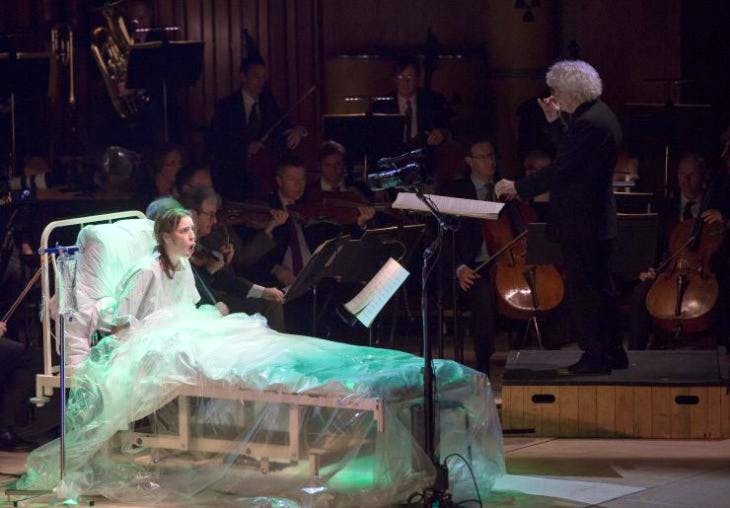

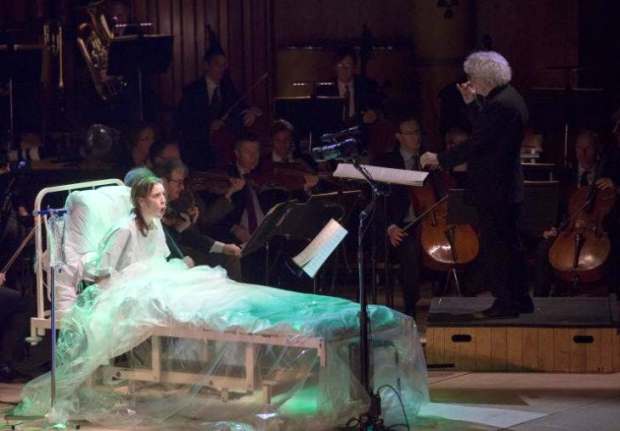
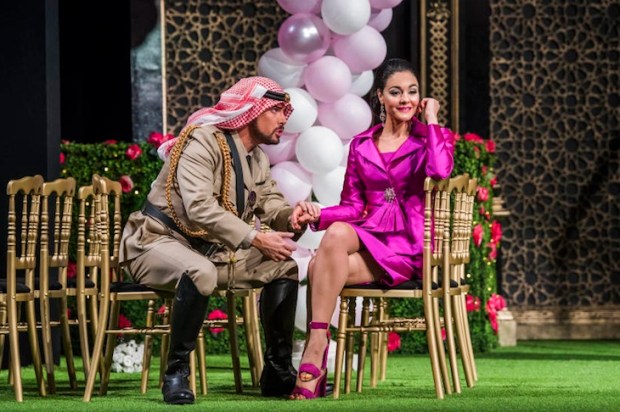

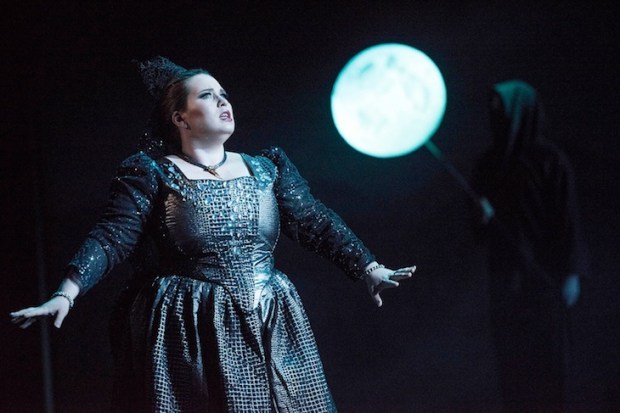
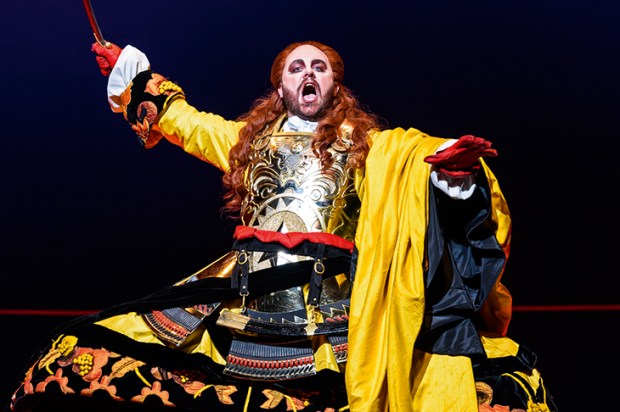






Comments
Don't miss out
Join the conversation with other Spectator Australia readers. Subscribe to leave a comment.
SUBSCRIBEAlready a subscriber? Log in